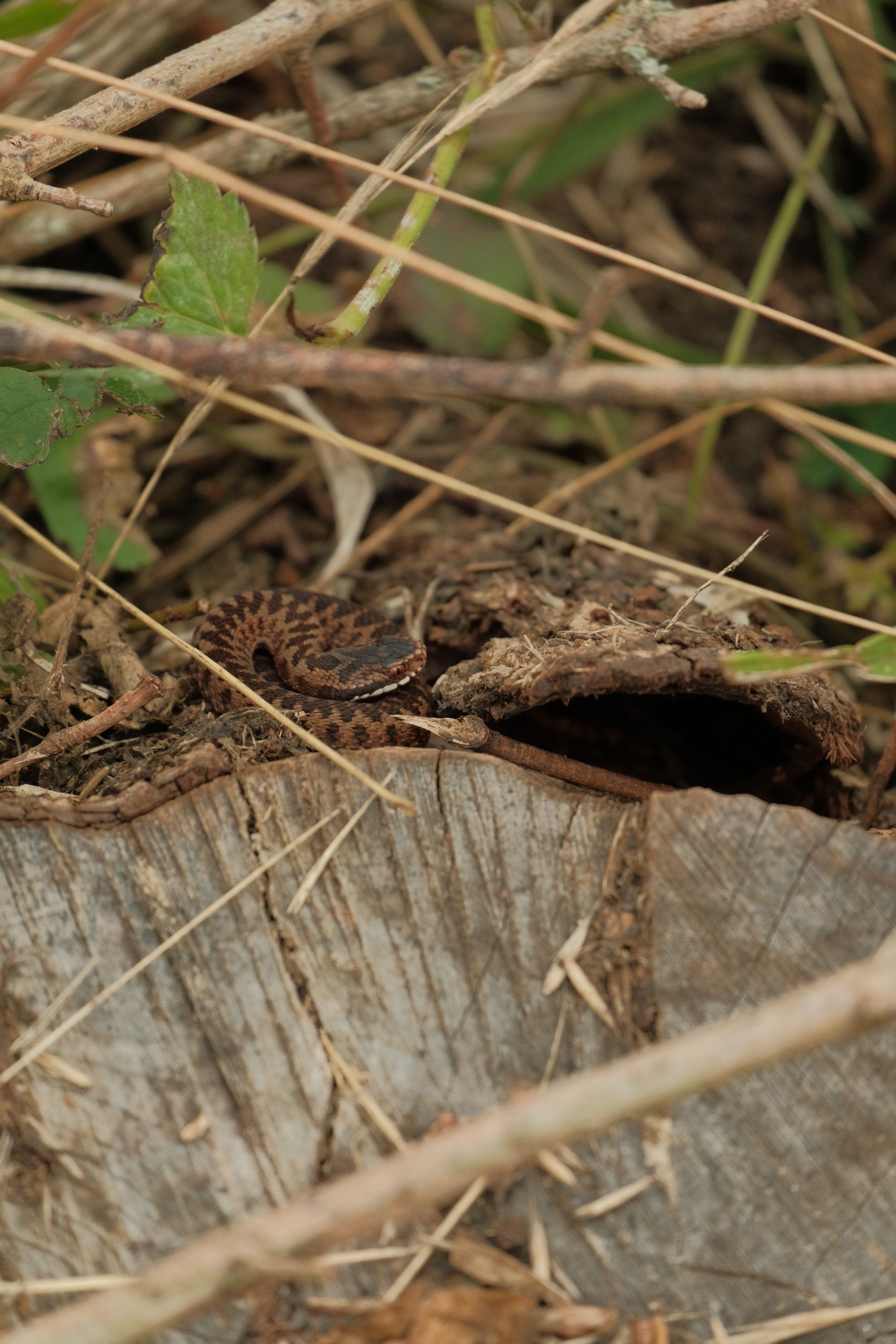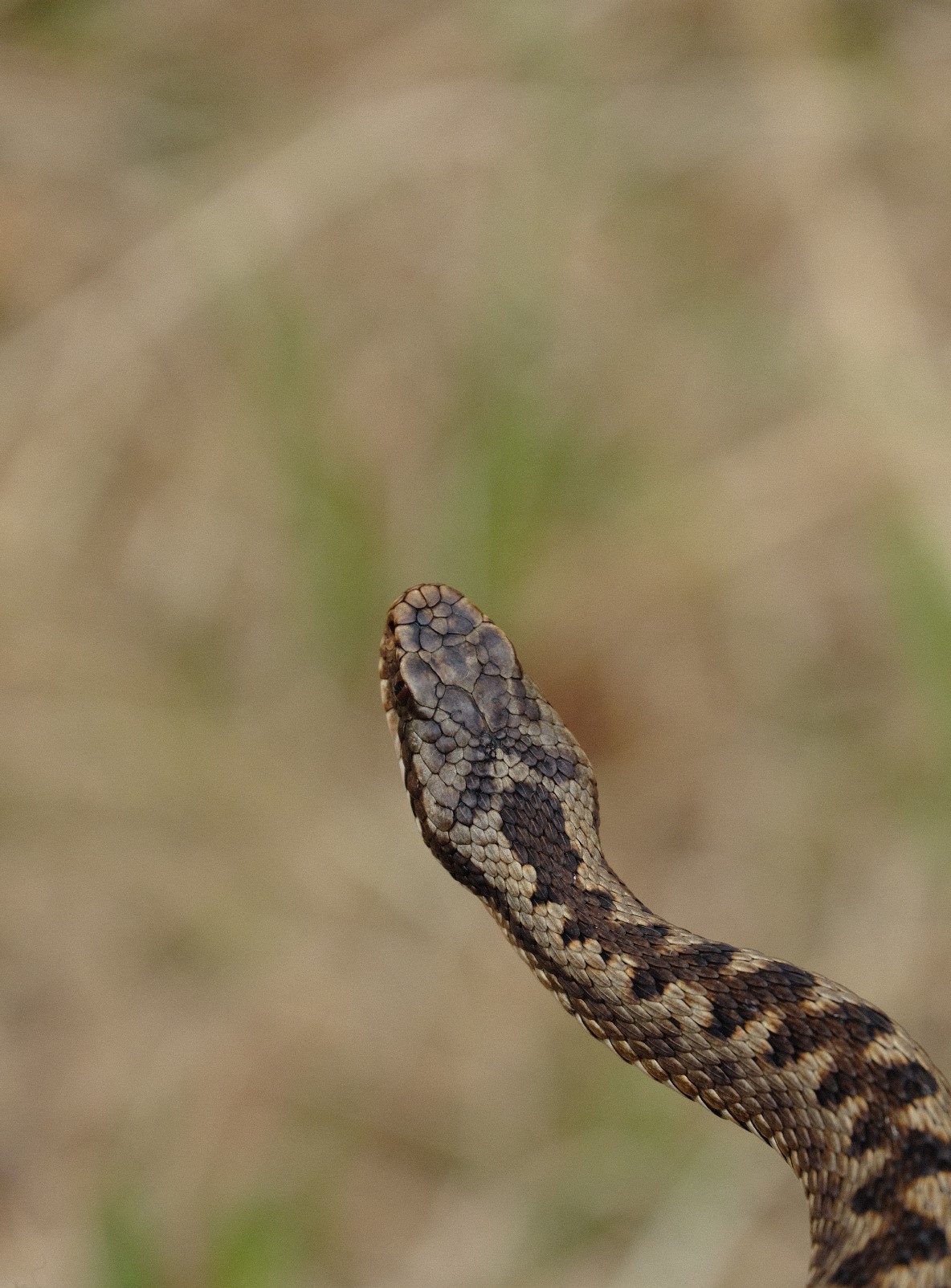News
Adders in August – what’s happening now
8 August 2025
Adders in August – what’s happening now?
As summer matures into August, Britain’s only native venomous snake—the adder (Vipera berus)—enters one of the most delicate and critical stages of its life cycle. This month is especially significant for gravid (pregnant) females, whose health and survival are crucial to the species’ long-term viability.
Gravid Females and Reproduction
By August, female adders that mated in the spring are heavily gravid and rely on external heat sources to incubate their developing young. Unlike many reptiles, adders give birth to live young rather than laying eggs. To support this, females are often seen basking in sunny, sheltered spots—sometimes for hours at a time—to maintain the high body temperatures needed for embryonic development. This makes them especially vulnerable to disturbance.
Reproduction is an immense physiological burden. Gravid females typically do not feed during pregnancy, meaning they rely on energy reserves built up earlier in the year. The cost of reproduction is so high that many females only breed every two to three years. A cool, wet August can delay or even prevent successful births, while human disturbance can drive them away from essential basking sites.

How can we help in this important time?
Human activity can severely disrupt these critical weeks. Curious dogs, off-path walkers, and habitat fragmentation all pose threats. Adders are secretive by nature, but disturbance during this time may force gravid females to abandon optimal basking sites, potentially jeopardizing their offspring.
If you plan to be out and about in the North Pennines this August, please follow the Countryside Code. To minimise human impact on adders, especially female adders:
• Keep to marked paths, especially in moorland, heathlands, and woodland edges.
• Keep dogs on leads when exploring the North Pennines to prevent accidental encounters with adders and to reduce the impact on livestock and other wildlife.
• Volunteer with the North Pennines to support wildlife and habitat conservation projects.
• Be an ‘Adder Advocate’ and spread awareness to help others understand that adders are shy, ecologically important animals and not aggressive threats.
• Contribute your adder and wildlife observations to iRecord or iNaturalist.
By giving adders the space they need during this sensitive season, we can play actively protect one of Britain’s most fascinating, vulnerable and misunderstood native species.
Find out more about adders in the North Pennines and how the North Pennines National Landscape team takes action for nature.








